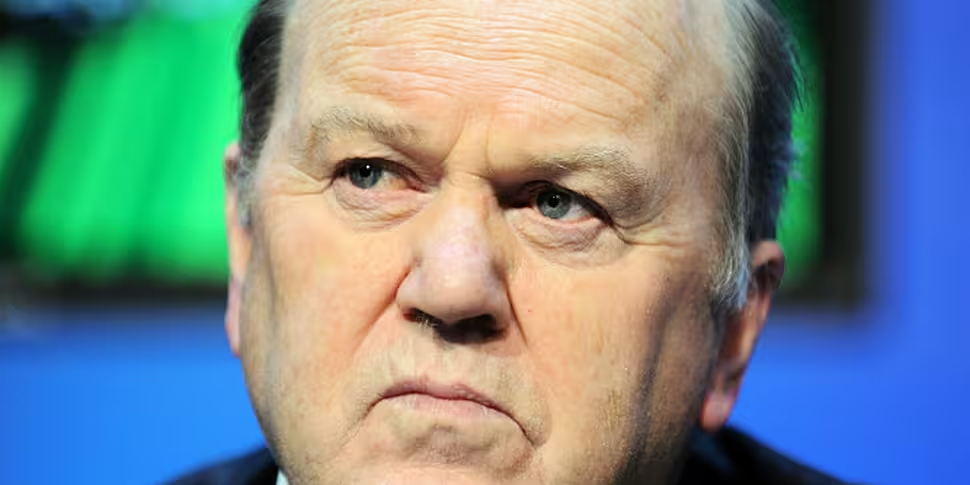Here is a thought experiment.
Imagine Fianna Fáil returns to power in 2016 – one hundred years after Easter 1916. The Taoiseach has to decide the Minister for Finance. She can choose from three types of characters. One is similar to Charlie McCreevy in outlook. Another similar to Brian Cowen. The third is similar to Brian Lenihan. Who do you think she should select?
I have conducted similar experiments with my public finance class. To avoid political party bias I would present them with a caricature of two Fianna Fáil Ministers of Finance. The two ministers were Seán MacEntee and Charlie McCreevy – the first and last Fianna Fáil Ministers for Finance of the 20th century.
My caricatures would draw attention to MacEntee’s patriotism, his part in the death of an RIC man, his conservatism, his austerity budgets, and his daughter’s account of how he did not want his family and friends to benefit from the trappings of office. In McCreevy’s case I would note how he was Minster for Finance during the Celtic Tiger years, how he lacked of any conviction for physical violence, and how he seemed to bring back the political bacon to Kildare. The biographies were exaggerated and selective but they were not a million miles wide of the mark.
The class would split approximately 80:20. Before 2007 about 80% would opt for McCreevy. From 2008 onwards the students selected MacEntee by a similar margin. Our perceptions and preferences change. They change with the passage of time. They also change with our economic circumstances. During the boom year McCreevy probably got too much credit, during the bust he probably got too much of the blame.
The Budgets, and the ministers who delivered them, reveal much about our economic, political and social history. The Budget speech is the closest we get to an annual “State of the Nation” speech. It includes a (biased) review of our current position and some vision of the future, while the larger budgetary measures reveal much about the nation’s financial position. But it’s the smaller budgetary measures, and the way they are delivered, that reveals more about us and the politicians we elect.
The broad parameters of Budget 2015 are established by commitments to our European partners. However, the smaller measures will reveal much about the priorities of this government - and of Fine Gael in particular.
There have been four Fine Gael Finance Ministers in the last 50 years: Richie Ryan, John Bruton (twice), Alan Dukes and Michael Noonan. And all were unlucky enough to inherit an economy in trouble. The first three did not survive long enough to see the economy recover sufficiently for the distribution of some economic gains.
But Michael Noonan might be different; recent economic data suggests the economy is recovering. Annual economic growth of 5% for 2014 and 2015 would give the minister room for manoeuvre. But he needs to choose carefully. His choices may determine his legacy.
There is no shortage of vested interests highlighting their claim for special treatment. Nowadays, most vested-interest schemes come wrapped in some form of questionable economic study – the study will show how the scheme will pay for itself many times over, how it will take people from the unemployment line, it will keep others at work, bring vast numbers of tourists to Ireland, and – of course – increase government tax receipts.
The problem for Michael Noonan is that dabbling in any such scheme will inevitably distract from the serious job at hand. For example, imagine if the Minister was to take on board the budget submission of – as a completely random example - the Restaurants Association of Ireland, which warned of a shortage of chefs. How would a special treatment of chefs detract from or disproportionately define Michael Noonan’s period in office?
Charles Haughey gave significant breaks to artists and horse owners – then later told us we were "living way beyond our means"
The worry for Fine Gael in such a move is that it might suggest a return to the ‘old’ ways of budgetary politics. Charlie McCreevy had such a budgetary measure more than a decade ago – not for chefs, but for sportspersons. Charles Haughey, for his part, gave preferential tax treatment to artists and horse owners. All these measures had their merits but they also revealed the priorities of those who introduced them; they became a huge part of each man’s political epitaph.
READ: SHANE COLEMAN – The Good, the Bad and the Likely of this year's Budget leaks
Budget 2015 will be the first post-Troika budget.
To use Michael Noonan’s words, Ireland has regained its purse, and so, he may be tempted to loosen the purse-strings. Or he may not. He may be tempted to cut the higher rate of tax. Or he may not. He may be tempted to raise the threshold at which people pay the higher rate of tax. Or he may not. We will not know until he takes to his feet on Tuesday.
What we do know, however, is that his choices will contribute to how history views the first Fine Gael Finance Minister of the 21st century.









